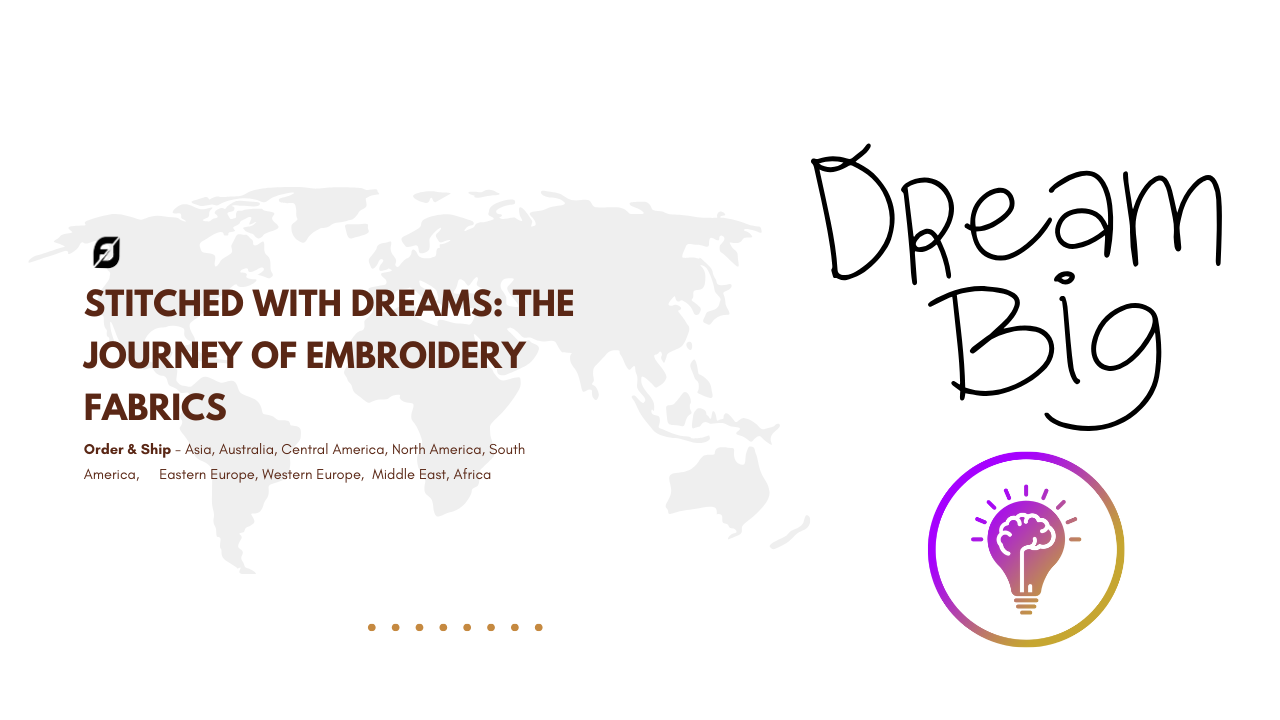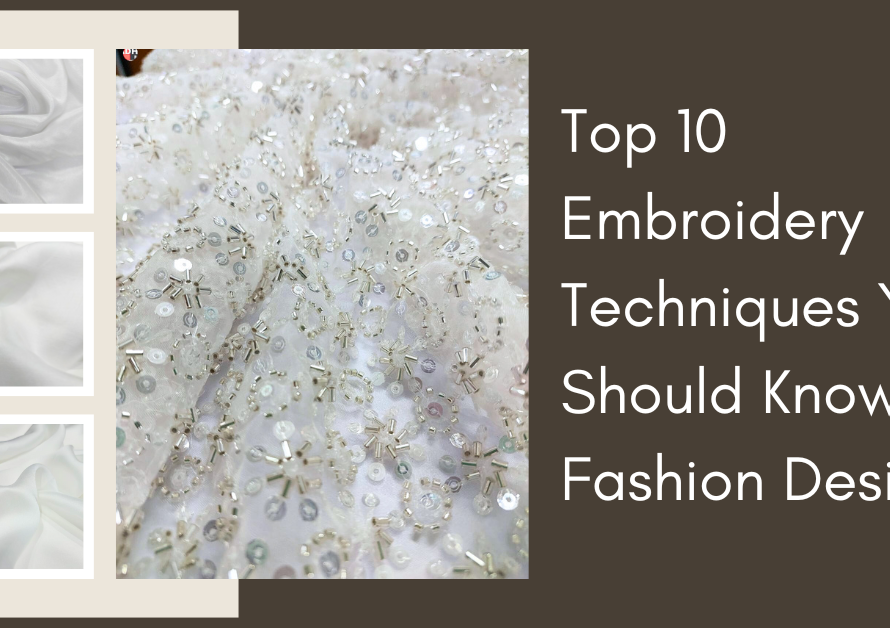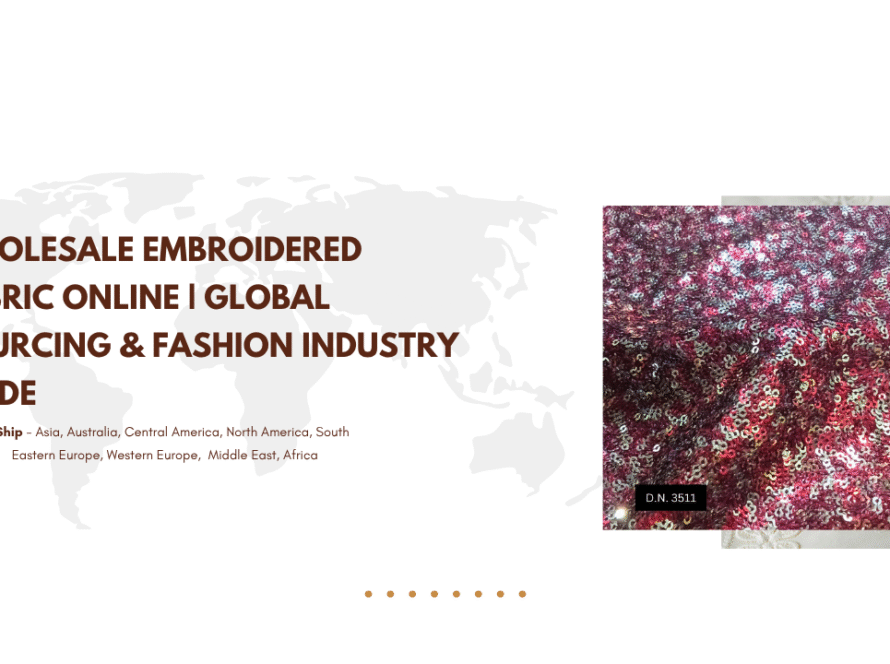Lucknowi Chikan embroidery, often referred to as “chikankari,” is an ancient and revered craft originating from the city of Lucknow in India.
This delicate and intricate form of needlework has been synonymous with grace and sophistication for centuries. The artisans of Lucknow have mastered this art, passing down their skills through generations, ensuring that each piece of chikankari work tells a unique story of cultural heritage and craftsmanship.
Madhav Fashion Lucknowi Chikan Embroidery
The Art and Craft of Chikan Embroidery
Chikan embroidery involves creating patterns on fabric using various stitches. These stitches range from the basic running stitch to more complex forms like the shadow work, which gives the fabric a light and shadow effect. The most commonly used stitches in chikankari include:
- Tepchi (Running stitch)
- Bakhiya (Shadow work)
- Hool (Eyelet stitch)
- Zanzeera (Chain stitch)
- Rahet (Stem stitch)
- Jali (Net effect)
These stitches, when combined, create stunning designs that can transform a simple piece of cloth into a work of art.
Types of Chikan Embroidery
Lucknowi chikankari is versatile and can be done on various types of fabrics such as cotton, muslin, silk, chiffon, and georgette. The choice of fabric often depends on the occasion and the wearer’s preference. The most popular types of garments adorned with chikankari include:
- Chikan Kurtis: Ideal for casual and semi-formal wear, these are a staple in many wardrobes.
- Chikan Suits: These elegant suits are perfect for formal occasions and come in various designs and patterns.
- Chikan Sarees: A favorite for traditional events, these sarees showcase the artisans’ skills beautifully.
- Chikan Fabric: For those who wish to create their own designs, chikankari fabric is available for purchase.
Madhav Fashion: Leading the Chikan Embroidery Revolution
Madhav Fashion has emerged as the largest manufacturer of Lucknowi Chikan embroidery fabric in Asia. Their dedication to quality and innovation has set them apart in the textile industry. By combining traditional techniques with modern aesthetics, Madhav Fashion ensures that each piece of fabric not only retains the essence of chikankari but also appeals to contemporary tastes.
Madhav Fashion’s Commitment to Quality
At Madhav Fashion, every piece of chikankari fabric undergoes rigorous quality checks to ensure it meets the highest standards. Their team of skilled artisans meticulously works on each design, ensuring precision and perfection in every stitch. This commitment to excellence has earned Madhav Fashion a reputation for being the best in the business.
A Wide Range of Products
Madhav Fashion offers an extensive range of chikankari fabrics and garments, catering to diverse needs and preferences. Whether you’re looking for a white Lucknowi chikan suit for a special occasion or lightweight chiffon kurtis for everyday wear, Madhav Fashion has something for everyone.
Innovations in Chikankari
While preserving the traditional essence of chikankari, Madhav Fashion continuously innovates to keep up with the latest trends. They experiment with new designs, color palettes, and fabric blends, ensuring that their products are always in vogue. This blend of tradition and modernity is what makes Madhav Fashion a leader in the chikankari industry.
Embrace the Elegance of Lucknowi Chikan Embroidery
Lucknowi Chikan embroidery is more than just a form of needlework; it’s a celebration of art, culture, and heritage. Each piece tells a story of the skilled artisans who poured their heart and soul into creating it. Whether you wear a chikan kurti for a casual outing or a chikan suit for a formal event, you are embracing a piece of history and tradition.
With Madhav Fashion leading the way, the future of Lucknowi chikankari looks brighter than ever. Their dedication to quality, innovation, and tradition ensures that this timeless craft will continue to enchant and inspire for generations to come. So, indulge in the elegance of Lucknowi chikan embroidery and experience the magic of this exquisite art form.
——————————————-
Frequently Asked Questions (FAQs) about Lucknowi Chikan Embroidery
1. What is Lucknowi Chikan Embroidery, and where does it originate from?
Lucknowi Chikan embroidery, also known as chikankari, is a traditional form of needlework originating from Lucknow, India. This intricate craft involves creating delicate and elaborate patterns on fabric using a variety of stitches. The art form dates back to the Mughal era and has been passed down through generations of artisans. Chikankari is renowned for its elegance and sophistication, often featuring floral motifs and intricate designs that highlight the fabric’s beauty. The process begins with designing the pattern, followed by block printing the design onto the fabric. Artisans then hand-embroider the design using various stitches like bakhiya (shadow work), tepchi (running stitch), and jali (net effect). Each stitch adds depth and dimension to the fabric, making every piece unique. Lucknowi Chikan embroidery is celebrated for its timeless appeal and versatility, making it suitable for a range of garments, including kurtis, suits, sarees, and more. The craftsmanship involved in creating these pieces ensures that they remain a cherished part of Indian textile heritage.
2. What types of fabrics are commonly used for Lucknowi Chikan embroidery?
Lucknowi Chikan embroidery is versatile and can be done on a variety of fabrics, each offering a unique look and feel. The most common fabrics used include cotton, muslin, silk, chiffon, and georgette. Cotton is popular for its comfort and breathability, making it ideal for everyday wear and summer outfits. Muslin, a finely woven cotton, is lightweight and perfect for delicate, intricate designs. Silk is used for more luxurious and formal garments, offering a rich and smooth texture that enhances the embroidery’s elegance. Chiffon and georgette are lightweight and flowing, making them suitable for creating stylish and graceful garments like sarees, anarkalis, and dupattas. These fabrics drape beautifully and add a touch of sophistication to the embroidered patterns. The choice of fabric often depends on the occasion and personal preference. For instance, a cotton kurti with chikankari is ideal for casual wear, while a silk suit with intricate embroidery is perfect for festive and formal events. Each fabric, paired with the delicate artistry of chikankari, creates a unique and timeless piece.
3. What are the different types of stitches used in Lucknowi Chikan embroidery?
Lucknowi Chikan embroidery features a variety of stitches, each adding a unique texture and dimension to the fabric. The most commonly used stitches include:
- Tepchi: A basic running stitch that outlines the motifs.
- Bakhiya: Known as shadow work, where the stitch is done on the reverse side to create a shadow effect on the front.
- Hool: An eyelet stitch used to create small, decorative holes in the fabric.
- Zanzeera: A chain stitch used for outlining.
- Rahet: A stem stitch that forms the stems and outlines of floral patterns.
- Jali: A net effect created by pulling the fabric threads apart to form a mesh.
- Phanda: A knot stitch used to create raised, dot-like patterns.
- Keel Kangan: A decorative stitch used for filling patterns. These stitches are combined to create intricate designs that can range from simple and subtle to elaborate and ornate. The artistry of chikankari lies in the seamless blending of these stitches to enhance the fabric’s beauty and elegance. Each stitch contributes to the overall texture and visual appeal, making Lucknowi Chikan embroidery a timeless and versatile craft.
4. How do you care for and maintain garments with Lucknowi Chikan embroidery?
Proper care and maintenance of garments with Lucknowi Chikan embroidery are essential to preserve their beauty and longevity. Here are some tips to ensure your chikankari pieces remain in excellent condition:
- Washing: Hand wash the garment in cold water with a mild detergent. Avoid using bleach or harsh chemicals as they can damage the delicate embroidery. If machine washing is necessary, use a gentle cycle and place the garment in a mesh laundry bag.
- Drying: Air dry the garment by laying it flat on a clean, dry towel. Avoid wringing or twisting the fabric, as this can distort the embroidery. Do not expose the garment to direct sunlight for extended periods, as this can cause fading.
- Ironing: Iron the garment on the reverse side using a low heat setting. Place a thin cloth over the embroidery to protect it from direct heat and prevent any potential damage.
- Storage: Store the garment in a cool, dry place, preferably in a breathable cotton bag. Avoid hanging heavy embroidered pieces, as this can cause the fabric to stretch. Fold the garment carefully to prevent creases on the embroidery. By following these care instructions, you can ensure that your Lucknowi Chikan embroidered garments remain vibrant and beautiful for years to come, allowing you to enjoy the timeless elegance of this traditional craft.
5. What makes Madhav Fashion the largest manufacturer of Lucknowi Chikan embroidery fabric in Asia?
Madhav Fashion has earned its reputation as the largest manufacturer of Lucknowi Chikan embroidery fabric in Asia through its commitment to quality, innovation, and tradition. Here are some key factors that set Madhav Fashion apart:
- Quality: Madhav Fashion places a strong emphasis on quality control. Each piece of chikankari fabric undergoes rigorous checks to ensure it meets the highest standards. The use of premium materials and meticulous craftsmanship ensures that every product is flawless.
- Skilled Artisans: Madhav Fashion employs highly skilled artisans who have mastered the art of chikankari. Their expertise and attention to detail result in beautifully crafted pieces that showcase intricate embroidery and design.
- Innovation: While preserving the traditional essence of chikankari, Madhav Fashion continuously innovates to keep up with contemporary trends. They experiment with new designs, color palettes, and fabric blends, ensuring that their products appeal to modern tastes.
- Wide Range of Products: Madhav Fashion offers an extensive range of chikankari fabrics and garments, catering to diverse needs and preferences. From casual kurtis to luxurious suits and sarees, they have something for every occasion.
- Customer Satisfaction: Madhav Fashion is dedicated to providing excellent customer service. They prioritize customer satisfaction and strive to meet and exceed expectations. These factors, combined with a deep respect for tradition and a drive for excellence, have solidified Madhav Fashion’s position as the leading manufacturer of Lucknowi Chikan embroidery fabric in Asia.
6. How has Lucknowi Chikan embroidery evolved over the years?
Lucknowi Chikan embroidery has undergone significant evolution over the years, adapting to changing fashion trends while preserving its traditional essence. Historically, chikankari was primarily done on muslin and cotton fabrics using white threads, creating subtle and elegant designs. The motifs were predominantly floral, inspired by Persian art, and the stitches used were simple yet intricate. Over time, the craft has expanded to include a variety of fabrics such as silk, chiffon, georgette, and organza. The color palette has also diversified, with artisans now using colored threads and incorporating sequins, beads, and mirror work to add a touch of glamour to the designs. Modern chikankari often features contemporary patterns and motifs, blending traditional techniques with modern aesthetics. Fashion designers have played a crucial role in popularizing chikankari on national and international platforms. They have incorporated this delicate embroidery into a range of garments, from casual kurtis and tunics to formal sarees, lehengas, and even western outfits like dresses and jackets. This fusion of traditional craftsmanship with modern fashion has ensured that Lucknowi Chikan embroidery remains relevant and in demand. Despite these changes, the core techniques and craftsmanship of chikankari have remained unchanged. Artisans continue to hand-embroider each piece with precision and care, preserving the heritage and authenticity of this timeless craft.
7. Can Lucknowi Chikan embroidery be customized for personal designs?
Yes, Lucknowi Chikan embroidery can be customized for personal designs, allowing individuals to create unique and personalized garments. Many manufacturers and artisans offer customization services, where customers can choose specific patterns, motifs, fabrics, and colors to suit their preferences. Here’s how the customization process typically works:
- Design Consultation: The process begins with a consultation where customers discuss their ideas and preferences with the artisans or designers. This could include choosing the type of garment, fabric, embroidery patterns, and color schemes.
- Sketching and Approval: Based on the consultation, the designers create sketches or digital mock-ups of the proposed design. Customers can review these sketches and suggest any modifications or adjustments they desire.
- Fabric Selection: Customers can choose from a variety of fabrics such as cotton, silk, chiffon, georgette, or organza. The choice of fabric will depend on the occasion, the desired look, and personal comfort.
- Embroidery Process: Once the design and fabric are finalized, skilled artisans begin the hand-embroidery process. This stage requires precision and attention to detail to ensure the final product matches the customer’s vision.
- Fittings and Adjustments: For customized garments like suits, dresses, or sarees, fittings may be scheduled to ensure the perfect fit. Any necessary adjustments are made to achieve the desired look.
- Final Product: After completing the embroidery and any final adjustments, the finished garment is delivered to the customer. Customizing Lucknowi Chikan embroidery allows individuals to create one-of-a-kind pieces that reflect their personal style and preferences, making it a popular choice for special occasions and gifting.






